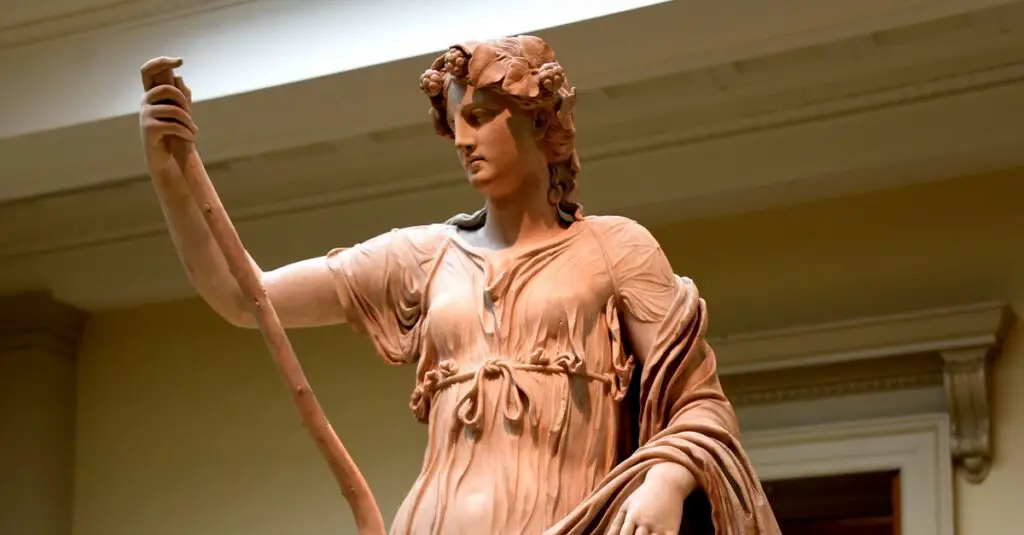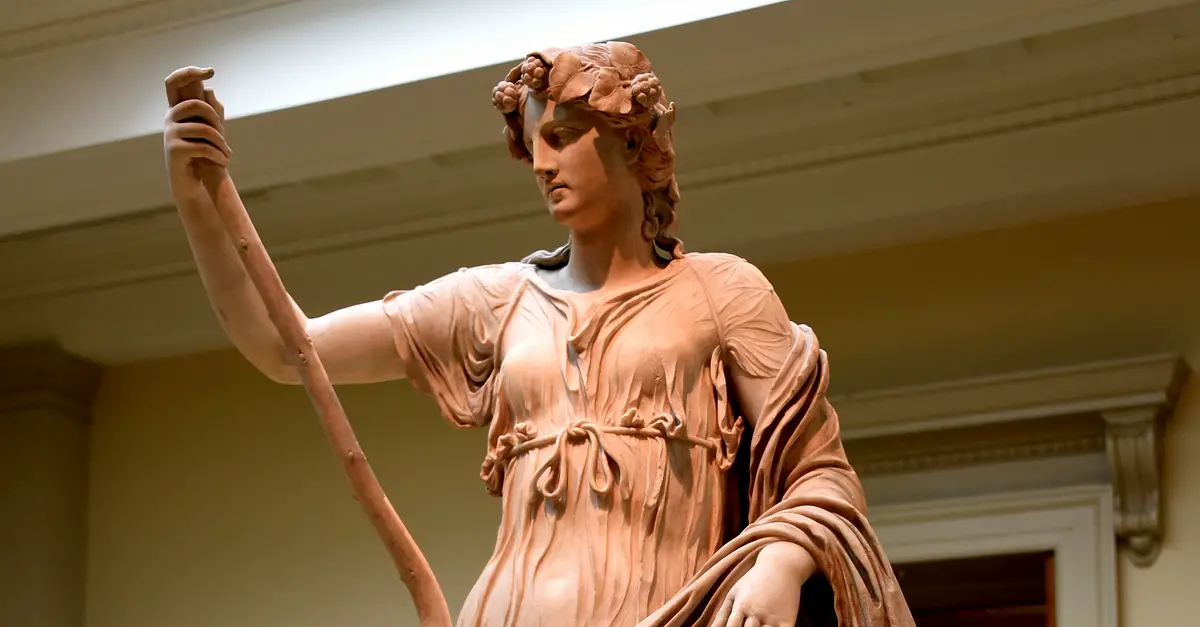
Enter the enchanting realm of Greek mythology, a world where gods, goddesses, and muses reign supreme, shaping the tapestry of creativity and inspiration.
In our odyssey through this mystical realm, we encounter Thalia, one of the illustrious Nine Muses, a captivating figure celebrated for her association with comedy and an aura of lightheartedness.
Join us as we embark on a journey to unravel the origins, family ties, distinctive attributes, and profound cultural significance that enshroud Thalia in the rich tapestry of Greek mythology.
The Nine Muses
Before we venture deeper into the enchanting story of Thalia, it’s only fitting that we acquaint ourselves with the esteemed assembly to which she belongs—the Nine Muses.
These divine beings were the very founts of artistic inspiration, their influence spanning a wide array of artistic domains, from the grandeur of epic poetry to the grace of dance.
In Greek mythology, the Nine Muses were a celebrated sisterhood, each bearing a unique responsibility for nurturing and inspiring the creative endeavors of humankind.
Their presence was not confined to a single sphere; rather, they collectively presided over a vast spectrum of artistic disciplines, bestowing their blessings upon poets, musicians, historians, and artists alike.
This eclectic group of muses was akin to a celestial pantheon, each muse a guardian of her own artistic domain, collectively shaping the course of human creativity.
Their profound influence continues to resonate throughout the annals of history, a testament to the enduring power of artistic expression and inspiration in the human experience.
- Read also: Exploring the Timeless Power of Greek Fertility Goddesses
- Read also: Who is Theia? Unraveling the Enigmatic Powers
Thalia’s Origins and Family
Thalia, the muse of comedy and lightheartedness, boasts a lineage worthy of her divine status.
She is the cherished offspring of Zeus, the supreme ruler of the Greek gods, and Mnemosyne, the Titaness who personified memory.
This illustrious parentage elevates her to the loftiest echelons of Greek mythology, firmly establishing her as a figure of immense importance.
Within the heavenly hierarchy of Greek mythology, Thalia is not an only child.
She shares her divine bloodline with a select group of siblings, all of whom are fellow Muses.
These sister muses are each entrusted with the guardianship of distinct creative domains, making for a harmonious and creative family tree that encompasses the vast spectrum of human artistic expression.
Thalia’s Characteristics and Attributes
Thalia, one of the Nine Muses in Greek mythology, is celebrated for her connection to comedy and lightheartedness.
She is the daughter of Zeus and Mnemosyne, placing her among the highest ranks of divine lineage.
Thalia embodies festivity, laughter, and entertainment, often depicted with a wreath of ivy or a comic mask.
Her very name, derived from “thaleia,” signifies “blooming” or “joyous abundance,” emphasizing her role as a muse of jubilation and exuberance in the artistic realm.
Thalia’s Role in Greek Culture
Thalia’s impact on Greek culture was nothing short of profound.
Her divine influence extended its benevolent reach into the hallowed realm of theater and comedy.
Playwrights and performers of ancient Greece found themselves inspired by her radiant presence, resulting in the creation of comedic masterpieces that brought unbridled joy and laughter to the hearts of the audience.
In the grand tapestry of Greek festivities and celebrations, Thalia was a coveted guest. Her very presence infused an aura of merriment into every occasion.
Festivals that honored the arts and the muses, such as the renowned City Dionysia, sought her benevolent influence, ensuring that the spirit of festivity and humor reigned supreme.
Thalia’s legacy as a muse of comedy and lightheartedness endures, her name forever etched in the annals of Greek culture.
Through her inspirational presence, she not only enriched the creative landscape but also brought boundless joy to the hearts of those who reveled in the theater of ancient Greece.
- Read also: Who is Oshun Goddess? The Enchanting Goddess of Love and Harmony
- Read also: Greek Gods vs Roman Gods
Conclusion
In the intricate fabric of Greek mythology, Thalia emerges as a radiant muse of comedy, casting a timeless glow that serves as a poignant reminder of the enduring value of laughter and a carefree spirit in our existence.
Her legacy, like an ever-burning torch, continues to kindle the flames of creativity and resonates as an enduring testament to the necessity of finding joy even amidst life’s most daunting challenges.
FAQs
Absolutely! The Muses continue to symbolize the essence of creativity and inspiration in various forms of art and culture.
Thalia’s influence can be seen in the comedies of Aristophanes and other ancient playwrights, as well as in modern comedy and entertainment.
While some Greek myths mention relationships between gods and mortals, Thalia is primarily celebrated for her role in comedy and creativity, rather than romantic escapades.
Embrace humor, laughter, and celebrations. Take moments to appreciate the lighter side of life, just as the ancient Greeks did in honor of Thalia.



